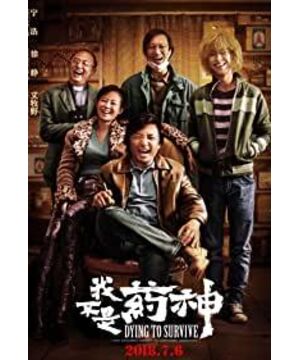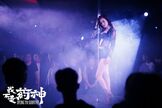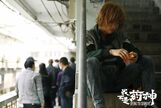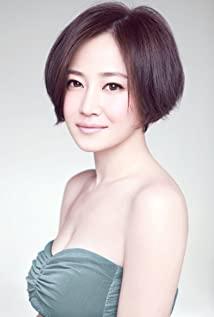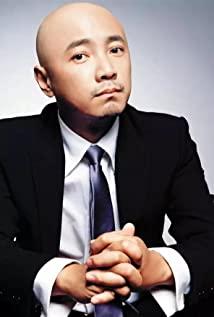If a person who is not a medical professional knows all kinds of drugs, then this person is probably a patient.
Therefore, the vast majority of healthy people know very little about this drug called "Gleevec".
This is a molecularly targeted drug developed by Novartis for the tyrosine kinase BCR-ABL. It is currently the first-line drug for Philadelphia chromosome-positive chronic myeloid leukemia, and its effective rate can reach 95%.
Chronic myeloid leukemia is a type of leukemia caused by chromosomal abnormalities. The patient's chromosomes 9 and 22 are translocated, resulting in abnormal gene expression, resulting in a sharp increase in white blood cells in the patient's body and abnormal enlargement of the spleen.
Different from other terminal illnesses, the condition of chronic myeloid leukemia patients can be effectively controlled by taking specific drugs every day. From the outside, they do not look like "patients" at all. They can work, live, get married, exercise, and maintain ten years. For many years or even longer, chronic myeloid leukemia is also known as the "luckiest cancer", and "Gleevec", which has increased the survival probability of patients from 50% to 90%, can be called the "luckiest cancer" of patients with chronic myeloid leukemia. Life saver.
However, in China, "Gleevec" is daunting for terminally ill patients because of its high price: a box of "Gleevec" costs about 20,000 yuan. If a chronic myeloid leukemia patient chooses to take the genuine "Gleevec" produced in Switzerland, it will cost more than 20,000 yuan a month and must take it for life.
Around 2010, the Swiss "Gleevec" is about to reach the patent deadline. Pharmaceutical companies once introduced a preferential policy, that is, when you buy medicines, you can pay for the first three months of the year, and you can get the medicines for free in the remaining nine months. Even so, a patient still has to pay about 70,000 yuan a year to buy "Gleevec".
In 2017, the per capita disposable income of national residents was 25,974 yuan. 70,000 yuan is not a small amount for a large number of patients in China. A large number of chronic myeloid leukemia patients have cut off their hope of life because they are unable to pay the annual fee of 70,000 yuan.
And India's imitation "Gleevec" has opened the door of life for many patients under such circumstances.
The price of Indian generic Gleevec is low. If a chronic myeloid leukemia patient chooses to take Indian Gleevec, it will only cost more than 3,000 yuan a year. In 2014, the price of Indian generic drugs dropped again. The cost is even less than one percent of the drug price during the period of the genuine "Gleevec" patent.
Under such circumstances, many patients who had difficulty supporting the high cost of Gleevec turned to purchase the cheap Indian Gleevec.
Lu Yong, the prototype of the male protagonist in "I'm Not the God of Medicine", was the first person to buy medicines from an Indian pharmaceutical company.
Lu Yong graduated from Southeast University and runs a textile factory in Wuxi. In 2002, Lu Yong was diagnosed with chronic myeloid leukemia. At that time, Gleevec in Switzerland was expensive, and patients bought it at their own expense. Each box needed to pay 23,500 yuan, and it cost nearly 300,000 yuan a year. In 2002, 300,000 yuan could almost be called a sky-high price by ordinary families in China, but this 300,000 yuan can only sustain a patient's life for one year.
In June 2004, Lu Yong browsed an article on the Internet about Korean patients with chronic myeloid leukemia. Two sentences caught his eye: The first sentence was that as early as 2001, Korean patients with chronic myeloid leukemia had Buy generic drugs from India; the second sentence is to say that the price of generic drugs in India is one-third of the genuine drugs.
Lu Yong immediately asked someone to buy imitation Gleevec made in India in Japan at 4,000 yuan per box. Lu Yong tried to contact the manufacturer's phone number on the medicine box. He became the first Chinese to get in touch with an Indian manufacturer.
After that, he took Veenat, a generic Gleevec drug produced by the Indian company Natco, for seven years, and introduced the drug and the purchase process to other patients. The patients purchased the medicines according to the procedure mentioned by Lu Yong, and transferred the cost of purchasing the medicines to Lu Yong. With the help of Lu Yong, there are more than 1,000 chronic myeloid leukemia patients who purchased Gleevec in India.
However, the Indian "Gleevec" has not been included in China's domestic drug manual because of its infringement. In other words, although Veenat is also a genuine imatinib mesylate tablet, it is regarded as a "fake drug" by laws and regulations in China.
On July 21, 2014, the Yuanjiang City Procuratorate prosecuted Lu Yong to the Yuanjiang City Court on charges of "obstructing credit card management" and "selling counterfeit drugs." After arriving in Beijing at 6:30 pm on January 10, 2015, he was arrested by the police at the airport and detained in Chaoyang Detention Center. On January 27, 2015, the Yuanjiang City Procuratorate requested the court to withdraw the prosecution against Lu Yong. On the afternoon of January 29, 2015, Lu Yong was released and was detained for a total of 117 days.
Lu Yong's case aroused huge repercussions. During his detention at the Lu Yong Detention Center, more than 300 leukemia patients wrote a letter asking the judicial authorities to exempt him from criminal punishment. In the end, under the influence of the Lu Yong case, the expensive Swiss Gleevec was included in the medical insurance of 19 provinces and cities in China.
At the end of "I'm not the God of Medicine", the police officer Cao Bin played by Zhou Yiwei bluntly said, "Genuine glenin has been included in medical insurance, and Indian generic drugs are no longer needed by patients." Unfortunately, after all, reality is not as good as the ending of the movie, even after Medical insurance reimburses 75% of Gleevec, and patients themselves need to pay about 20,000 yuan per year. For many Chinese patients, especially the vast number of rural patients, the annual cost of 20,000 yuan is still a huge sum. Compared with Indian medicines that cost only a few hundred yuan for a course of treatment, the results are self-evident as to which medicine patients with poor economic conditions will choose.
There is no doubt that the Indian generics infringe the intellectual property rights of the Swiss genuine Gleevec to some extent. However, for terminally ill patients whose lives are at risk and who are struggling on the line of life and death, they are about to be deprived of their right to live.
There is no sin in wanting to live. Lu Yong, who helped leukemia patients to buy drugs, was finally acquitted, which just confirmed this.
For the film's progressive plot and good story structure, Cheng Yong, the hero of "I'm Not the God of Medicine", is quite different from the prototype of the story, Lu Yong. Cheng Yong is not a graduate of a famous school, but a small seller of aphrodisiac drugs; Lu Yong once stated that he had never earned any money from his patients, and Cheng Yong initially purchased drugs for profit, until a year later, his partner Lao Lu died. Let him change his mind and start purchasing medicines for the treatment of leukemia patients. This arrangement similar to many commercial films also makes the image of the male protagonist grow taller and fuller as the film progresses.
The moment when Cheng Yong went to India alone when Lao Lu was dying was a turning point in the whole film. The plot doesn't tell the story of his trip to buy medicine, but focuses on a moment when he encounters a folk celebration: he stands blankly on the street in India, covering his mouth and nose to block the oncoming smoke. In front of them is the Indian people parading with the statues of gods, first to a Shiva, and finally to a Brahma, with four arms, one of which is carrying the severed head, and the Dharma is solemn.
What is Brahma? It is a great god in Hinduism who answers every request. According to legend, no matter who it is, whether it is a god, a demon or a human being, as long as you make a wish to him, the wish will come true.
I wonder if Cheng Yong made a wish to Brahma? If he made a wish, then what kind of wish did he make? Do you hope that Lao Lu can get a chance and regain his new life?
As soon as the camera turned, the black and white portrait of Lao Lu was placed in front of Ling.
The illusory Brahma couldn't save the real patient, and Lao Lu died suddenly; Cheng Yong was not the god of medicine, he was just a little guy who did his best to help the patients and used to sell adult health care products to make a living. One by one, former partners died in front of him. He wanted to save people, but he couldn't save everyone - not only that, but in the end, he was even deprived of the right to save people and was thrown into prison.
That day Cheng Yong walked out of the mourning hall, Xiao Huangmao leaned on the stairs tremblingly and ate oranges, petal by petal, tears were more sour than oranges. The oranges were probably left by Lao Lu. Lao Lu likes to eat oranges, the first time he went to see Cheng Yong, Lao Lu took out an orange; the last time he saw Cheng Yong, Lao Lu still invited him to eat oranges. Now that Lao Lu is gone, Xiao Huangmao eats the oranges he left behind, and weeps for his patients and himself.
Injury to its kind. Only the patient knows the suffering of the patient. When the sick cry the dead, they often cry the saddest. Cheng Yong once shouted to his partners when he gave up his agent rights: "I'm not a leukemia person!" At that time, the sick partners left one by one and walked into the cold rain outside the house. Don't look back when wet. Cheng Yong was not a patient before, but now he is. For the first time, he felt a sense of belonging and identification with this group. He began to pay money to sell medicines, to atone for his patients, and to atone for Lao Lu, who could never come back.
Even if he wasn't guilty at all.
So, who is to blame?
Is it a high-priced pharmaceutical company? And they say they're just trying to recoup R&D costs.
Is it the dealers and medical representatives who are exploited in layers? And they say they are just making a reasonable profit.
Everyone says they are not guilty. So who is to blame?
In the world, the price of "Gleevec" in China ranks first, even if it is far ahead of developed countries. It's no wonder that thousands of patients can't afford its high price.
Therefore, Cao Bin refused to continue the case after listening to the patient's grandmother's tearful pleas; Zhang Changlin, who was deceived and abducted, took Cheng Yong's 300,000 yuan and kept his mouth shut in the interrogation room. These two people, respectively, represent the violent agency with intolerant law and the fake drug dealer with lack of morality, but in the end, they both fell to Cheng Yong's side. Life is above everything else, in any case, when it comes to the moment of choice, their conscience does not allow them to ignore life.
At several critical moments in the film, it always rained in Shanghai. In a rainy scene, an empty shot is fleeting: the background is the towering Oriental Pearl TV Tower, and the front is the dilapidated and old alley roof.
This is Shanghai, this is China.
Thousands of Chinese patients want to live.
View more about Dying to Survive reviews


